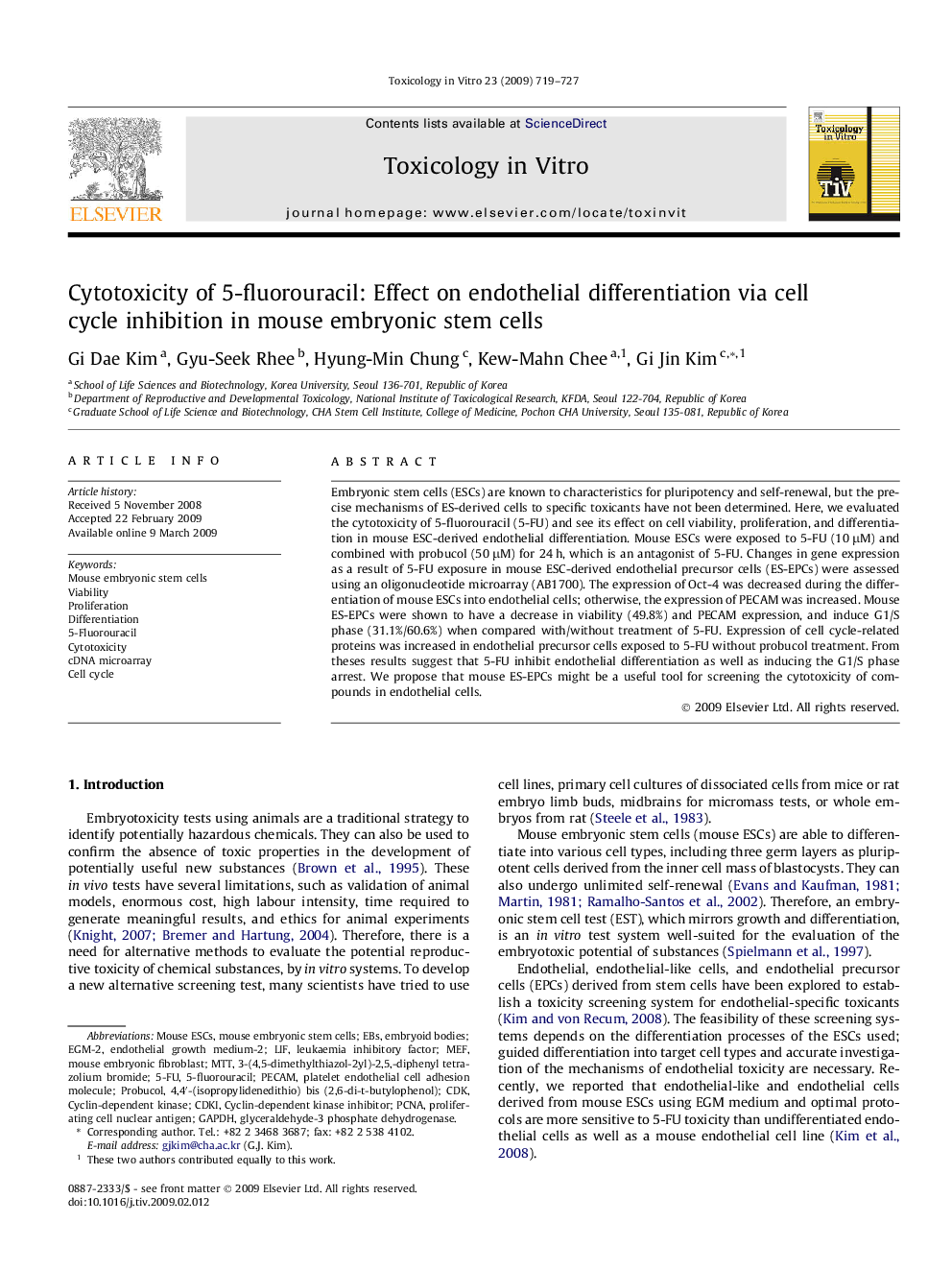| Article ID | Journal | Published Year | Pages | File Type |
|---|---|---|---|---|
| 2602801 | Toxicology in Vitro | 2009 | 9 Pages |
Embryonic stem cells (ESCs) are known to characteristics for pluripotency and self-renewal, but the precise mechanisms of ES-derived cells to specific toxicants have not been determined. Here, we evaluated the cytotoxicity of 5-fluorouracil (5-FU) and see its effect on cell viability, proliferation, and differentiation in mouse ESC-derived endothelial differentiation. Mouse ESCs were exposed to 5-FU (10 μM) and combined with probucol (50 μM) for 24 h, which is an antagonist of 5-FU. Changes in gene expression as a result of 5-FU exposure in mouse ESC-derived endothelial precursor cells (ES-EPCs) were assessed using an oligonucleotide microarray (AB1700). The expression of Oct-4 was decreased during the differentiation of mouse ESCs into endothelial cells; otherwise, the expression of PECAM was increased. Mouse ES-EPCs were shown to have a decrease in viability (49.8%) and PECAM expression, and induce G1/S phase (31.1%/60.6%) when compared with/without treatment of 5-FU. Expression of cell cycle-related proteins was increased in endothelial precursor cells exposed to 5-FU without probucol treatment. From theses results suggest that 5-FU inhibit endothelial differentiation as well as inducing the G1/S phase arrest. We propose that mouse ES-EPCs might be a useful tool for screening the cytotoxicity of compounds in endothelial cells.
